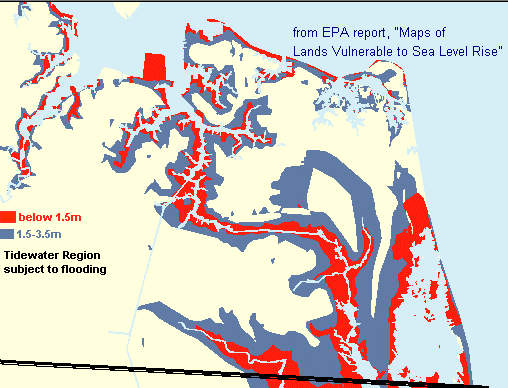West Virginia not responsible for sea-level rise in Rhode Island
Shutting down America’s most important power source helps no one
By Tom Harris
It is essential that the United States, the most important defender of the free world, not cripple itself through misguided energy choices. Many nations follow the US on energy policy, so even though we have no say in the choices you make, it is vitally important to countries like Canada that America not turn off its least expensive and most abundant source of electricity—domestically-mined coal.
It is therefore frightening that West Virginia Sen. Joe Manchin is attempting to find common ground with climate change activist, Sen. Sheldon Whitehouse of Rhode Island. Whitehouse admits that his mission is to essentially put America’s coal industry out of business.
The Rhode Island senator subscribes to the hypothesis that the release of carbon dioxide (CO2) from coal-burning power plants is a significant driver of global warming that he believes will cause dangerous sea-level rise in the Ocean State. Whitehouse actually holds West Virginians partially responsible for coastal management problems in Rhode Island.
Incredibly, Manchin concurs, asserting after hosting Whitehouse on a tour of West Virginia’s energy production facilities on Wednesday, “We agree that we must face the reality of climate change without delay.”
Rather than contest the improbable notion that humanity controls global climate, Manchin promotes expensive technologies to capture and store CO2 emissions underground. He seems unaware that it will be years before nation-wide ‘carbon capture and storage’ (CCS) on coal-fired power stations is possible, if indeed it ever is. The technology has yet to be proven.
And even if someday it is shown to be technically feasible, estimated CCS costs are so high that much of the industry will be driven out of business. Advocating CCS is, therefore, advocating an end to coal-fired electricity in America.
Instead of supporting this major threat to West Virginia’s most important industry, here is what Manchin should be telling his fellow Democrat.
The oceans have risen continuously since the end of the last glacial period about 11,000 years ago. During the Holocene Optimum, 8,000 years ago, when the planet was 2–3 degrees Celsius warmer than now and large quantities of ice were melting, sea-level rose about ten times faster than today and coastal settlements had to move quickly or be ruined.
But the rate of sea-level rise today is now so low that adaptation is relatively easy. Newport, Rhode Island, for example, has seen its local sea-level rise at a rate of about one tenth of an inch per year since 1930, with that rate neither increasing nor decreasing. Newport residents who build beside the ocean and do not take into account this natural sea-level rise will obviously have problems. Manchin must make it clear to Whitehouse that this is not the fault of West Virginians.
Manchin should also alert Whitehouse to the findings of the September 2013 report of the Nongovernmental International Panel on Climate Change which stated, “Sea-level rise is not accelerating. The global average sea-level continues to increase at its long-term rate of 1–2 mm/year [0.04-0.08 inches/year] globally.”
Since the Rhode Island senator believes the forecasts of theoretical climate models cited by the UN Intergovernmental Panel on Climate Change, Manchin must alert him to the models’ failures. None of them foresaw the current 18-year ‘pause’ in global warming for one simple reason—we do not yet understand the science well enough to know what to program the computers to compute.
Manchin must contrast the uncertainties surrounding Whitehouse’s climate concerns with the certainties of the threats to West Virginia’s coal sector.
Coal is the Mountain State’s most important industry and, as the source of 95% of its electricity, gives West Virginia the 7th lowest electricity costs in America. But the state’s coal sector is now under siege from increasingly damaging Environmental Protection Agency (EPA) rules. The consequence of this attack is that total coal production in the state declined 9% between 2012 and 2013, a period during which 17% of its coal mines closed, and coal employment decreased 6.4%, a loss of 3,457 jobs. Even before the EPA’s new climate change-driven Clean Power Plan regulations, which Whitehouse promotes, come into force, the ‘war on coal’ has already cost West Virginia billions of dollars.
Manchin needs to tell Whitehouse that Rhode Island’s coastal management issues are his own state’s responsibility, not that of West Virginia. Manchin cannot compromise on this. Ruining West Virginia’s economy in a vain attempt to stop the seas from rising will help no one.
_____________________
Tom Harris is Executive Director of the Ottawa, Canada-based International Climate Science Coalition (www.climatescienceinternational.org).




